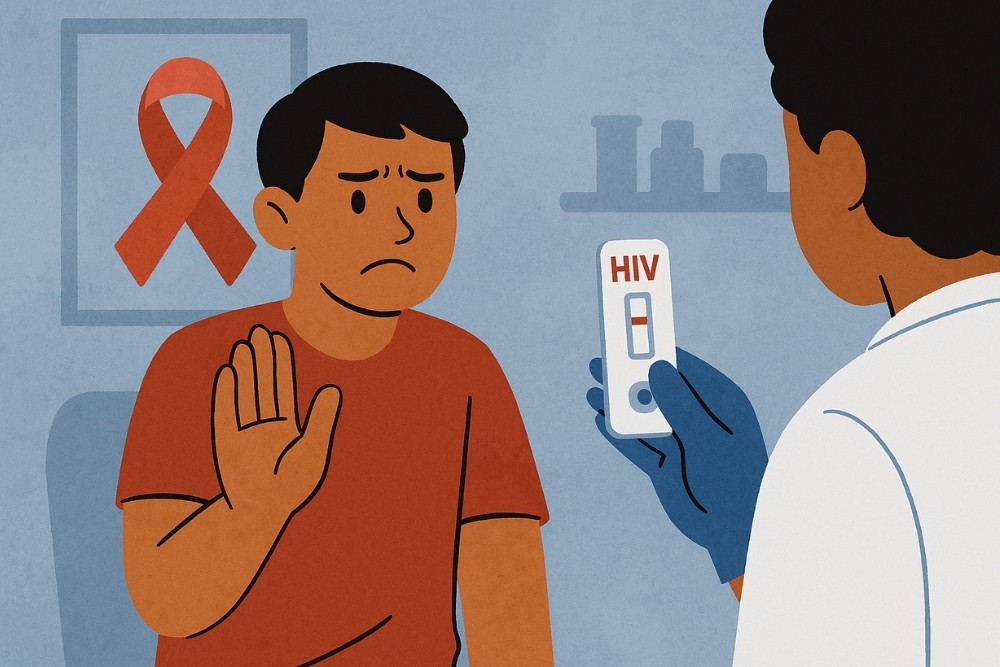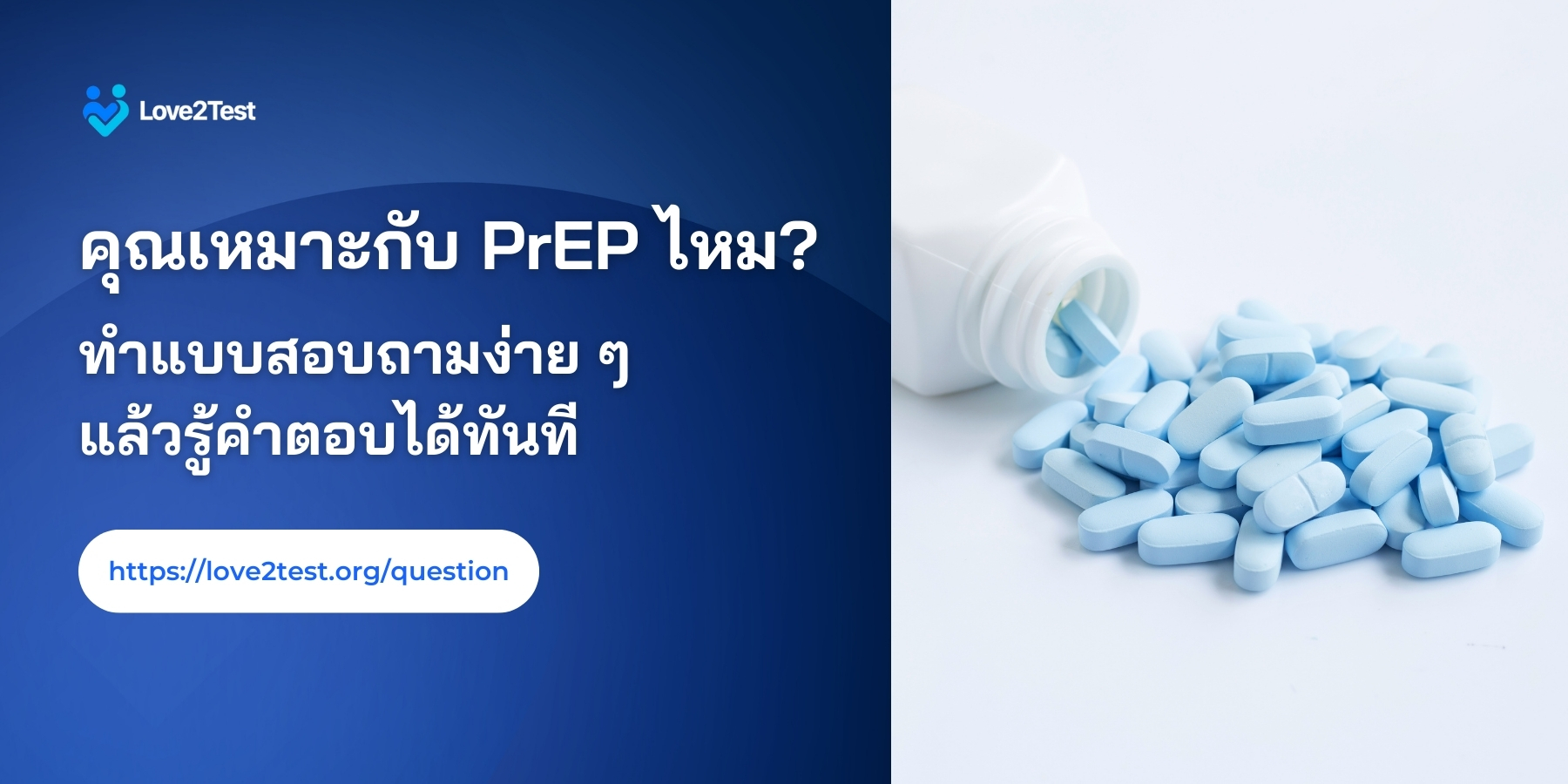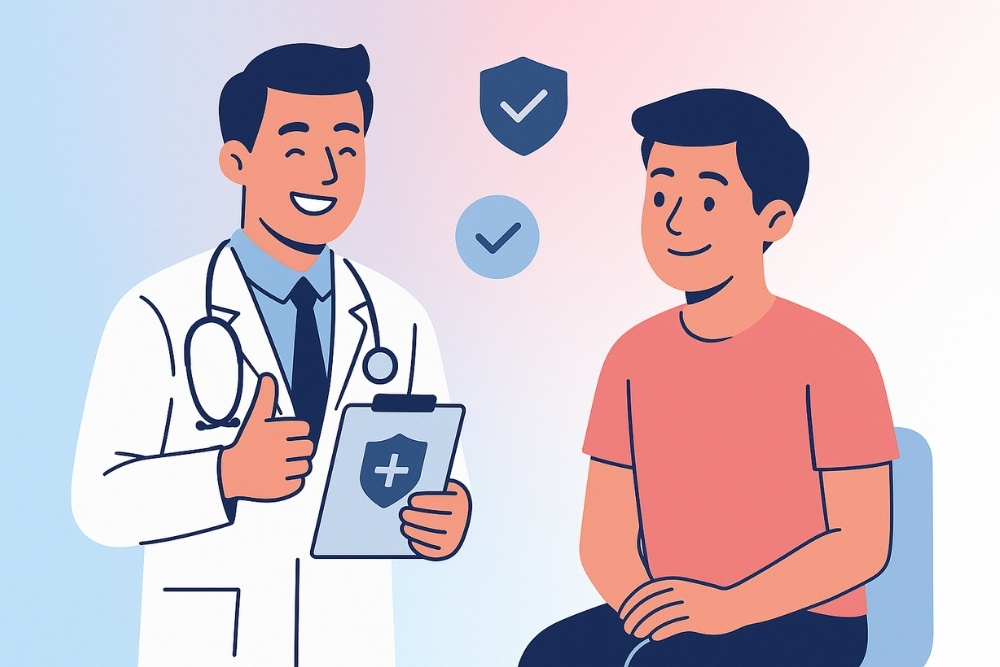Many people still fear HIV testing due to deep-seated fears and misconceptions. Some are afraid the result might come back positive, others fear being judged or stigmatized by those around them, while some worry that the testing process is complicated or frightening. All these concerns become barriers that lead many to choose “not to know” rather than “to know and protect themselves.” In reality, avoiding the test does not make anyone safer—it only increases the risk without realizing it. If a person is infected but unaware of it, they will miss the chance to begin treatment early when HIV can still be effectively controlled.
In truth, HIV is no longer the terrifying disease it was once believed to be. Today, people who test positive can live long, healthy lives just like anyone else—thanks to consistent treatment with antiretroviral therapy (ART). This medication helps reduce the amount of virus in the blood to undetectable levels, meaning that not only can the disease be controlled, but it also prevents the virus from being transmitted to others. Therefore, HIV testing should not be something to fear—it is an act of self-care and self-awareness. Knowing your HIV status is the first and most important step toward prevention, health maintenance, and peace of mind. Whatever the result may be, knowing is always better than not knowing. Early testing and early treatment are the keys to staying strong, healthy, and safe in the long run.
Why Many People Fear HIV Testing ?
HIV testing is one of the most effective ways to diagnose and treat the infection early. However, many people still fear HIV testing because they are afraid of finding out they are infected or worry that their results might be disclosed to others. In reality, the sooner you get tested, the sooner you can receive treatment and prevent the spread of HIV more effectively.

Fear HIV Testing Because You Worry You’ll Lose Hope
Testing positive for HIV can make some people feel as if their world is falling apart. It can be emotionally overwhelming at first. However, testing positive does not mean life has to stop. People living with HIV can stay healthy and live normal, fulfilling lives by taking antiretroviral medication as prescribed and practicing healthy, responsible habits. Treatment helps suppress the virus, prevent transmission, and allow you to live the life you’ve always wanted.
Fear of Getting Seriously Ill or Believing There’s No Cure
It’s understandable to fear illness, but in truth, HIV can be effectively managed with medication and medical guidance. Millions of people around the world live long, healthy lives with HIV through consistent treatment. You are not alone. If you ever have concerns or questions, you can always speak with doctors or trained professionals for advice and support.
Fear of Being Judged or Stigmatized
In Thai society, this issue remains sensitive. Stigma and discrimination against people living with HIV still exist. That’s why public awareness campaigns constantly emphasize that getting an HIV test is not shameful—it’s a responsible act of self-care and social responsibility. By choosing to get tested, you help reduce new HIV infections because you become informed, can take preventive measures, and if necessary, begin treatment immediately. Medical professionals—doctors, nurses, and counselors—are trained to provide confidential, judgment-free care. You can speak openly with them knowing that your information will remain strictly private.

The Consequences of Avoiding HIV Testing
Not getting tested means you might unknowingly carry the virus and pass it to others. This is one of the main reasons HIV continues to spread. If you fear HIV testing and avoid it, you lose valuable time that could be used for early treatment—before complications develop. Without knowing your status, your immune system may gradually weaken, making you more vulnerable to frequent illnesses and infections. Testing early means starting treatment early. The longer you wait, the harder it becomes to restore your immune strength. Ultimately, avoiding HIV testing does not protect you—it only puts your health and your loved ones at greater risk.

How to Overcome the Fear and Get Tested
First, understand that HIV does not cause death when treated properly. It can be managed through daily antiretroviral medication that keeps the virus under control. Getting tested helps you understand your health and gives doctors a chance to provide timely, effective care. Regardless of your test result, healthcare providers will guide you, support you emotionally, and ensure that you get the right follow-up care. Testing is not a punishment—it’s an opportunity to take control of your health and your future.
Common HIV Testing Methods Today
- Nucleic Acid Testing (NAT)
- This test detects the genetic material of the HIV virus itself. It can identify infection as early as 5–7 days after exposure, making it useful for detecting HIV during the acute stage. NAT is highly accurate but usually followed by another test around 90 days after exposure to confirm the result.
- Fourth-Generation HIV Test (HIV Ag/Ab Combination Assay)
- This method detects both antigens (from the virus) and antibodies (from your immune response). It can usually detect HIV about two weeks after infection and is widely used in hospitals and clinics.
- Anti-HIV Antibody Test (ANTI-HIV)
- This test looks for antibodies produced by the immune system in response to HIV infection. It can be performed at least 30 days after a potential exposure.

HIV Is Closer Than You Think
Many people believe they’re not at risk because they have only one partner or are in a long-term relationship. However, studies show that a significant number of people contract HIV from their regular partners. This can happen if a partner was unknowingly infected or had a past exposure they never tested for.
Risk factors for HIV infection include:
- Having sex with commercial sex workers
- Having unprotected sex (not using condoms consistently)
- Having sex with partners whose HIV status is unknown
- Having sex under the influence of alcohol or drugs
- Rough sex that causes genital injuries
- Contact with infected body fluids through open wounds
- Condom breakage or slippage without taking post-exposure medication (PEP)
- Sharing needles or injection equipment
- Getting tattoos or piercings from unsterilized equipment
How to Cope If You Test Positive
Speaking with your doctor or counselor is crucial for emotional support and understanding. Before testing, healthcare providers usually take a brief history and assess your emotional readiness. If your result is positive, they will explain the diagnosis clearly and guide you through the next steps. Remember: HIV is just a virus, not a death sentence. Early detection and treatment prevent severe illness and allow you to live a long, healthy life. With today’s medical advancements, antiretroviral drugs are highly effective, have minimal side effects, and are as easy to manage as taking daily vitamins.
When it comes to family, you can choose whether to disclose your result. HIV cannot be transmitted through casual contact, but your partner should know their own HIV status. If both partners are positive, you can begin treatment together.
Families are encouraged to:
- Offer emotional support instead of blame
- Listen and understand without judgment
- Support treatment and help maintain a positive mindset
The key is to educate yourself. Understanding HIV helps you stay healthy and confident. If you have a partner, they can protect themselves by taking PrEP (pre-exposure prophylaxis) daily, which effectively prevents HIV transmission—allowing couples to maintain normal, loving relationships. Starting treatment early and taking antiretroviral medication consistently for about six months can lower the virus to undetectable levels (U=U: Undetectable = Untransmittable). This means you cannot transmit HIV to others, and you can live your life fully and fearlessly.
In summary, fearing HIV testing means missing the first and most important step toward protecting yourself and others. You cannot tell by looking who has HIV; only a medical test can confirm it. Knowing your status early is the best way to ensure a strong, healthy, and safe future—for yourself and for those you love.
Reference:
↪︎ ทำไมคุณไม่ควรอาย ที่จะเข้ารับการตรวจหาเชื้อไวรัสเอชไอวี
↪︎ ไขข้อข้องใจความเชื่อผิดๆ เกี่ยวกับโรคเอดส์
↪︎ การ ตรวจเอชไอวี ประโยชน์มากกว่าที่คุณคิด
Last Updated on 24/10/2025 by ทีมที่ปรึกษา มูลนิธิเพื่อรัก

